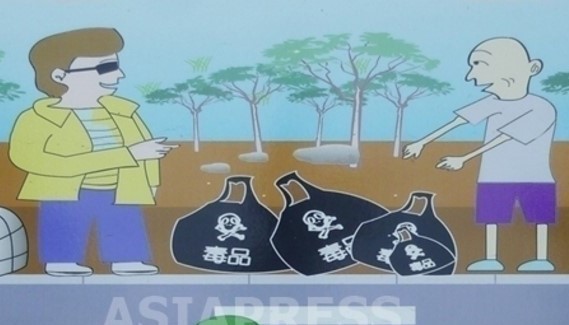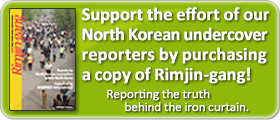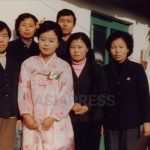
As North Korean exports to China have faced great difficulties due to U.N. Security Council sanctions, smuggling of banned goods has been on the rise along the Yalu river. However, this increased border traffic led to an unfortunate incident in November, when a Chinese broker died in a car accident on the N. Korean side of the border.
A reporting partner in Ryanggang Province claimed the accident occurred around November 16, when the Chinese broker’s car skidded and overturned on the icy road leading to the rendezvous point. A passenger in the vehicle was injured and taken to hospital, while the broker’s body was recovered and repatriated to China.
■ Smuggling in overdrive as river freezes over
It turns out the Chinese broker had been in North Korea to invest in minerals. Since last month, the North Korean authorities have been actively promoting the smuggling of minerals such as copper and molybdenum. Large trucks carrying tonnes of ore can cross the river in winter, when the Yalu completely freezes.
The reporting partner explained that Chinese investors and smuggling brokers visit North Korea often and delved further into the connection between rising smuggling and the accident, saying, “The dead broker was a Chinese woman. She came across to discuss investment in copper and molybdenum ore production and the necessary smuggling procedures. It seems that the incident occurred while the brokers were on their way to Sinpa County, the smuggling point, with Ryanggang Trade Bureau officials.
The upper reaches of the Yalu River are most popular for smuggling along the N. Korean-Chinese border because the river there is most narrow. Usually, the river freezes in mid-December, allowing large trucks to cross over without difficulty.
On the North Korean side, trading companies are responsible for smuggling operations under the approval of the administrative Trade Bureau. Locals call it “national smuggling” because all operations are supervised by customs officials and secret police. The Chinese receivers, meanwhile, are always from private companies. The hot spot for smuggling, Sinpa, is located 10km downstream of Hyesan, the main city of Ryanggang Province.
According to the reporting partner, though Chinese authorities are trying to crack down on smuggling, powerful Chinese traders are finding gaps by gaining information from border guards. The traders, for now, are coming out on top, with large trucks crossing the border nightly to transport hundreds of tonnes of minerals as well as containers full of squid caught in the East Sea. (Kang Ji-won)
※ASIAPRESS contacts reporting partners in North Korea through smuggled Chinese mobile phones.
- <Inside N. Korea> “Peace is an Illusion”: Regime Ratchets Up Military Tension to Match Recent Hard-Line Stance (2019-12-20 10:17:13)
- <Inside N. Korea> Capital Punishment: Foreign Cash Crackdown Feared After Kim Criticizes Citizens’ Neglect for National Currency (2019-12-12 10:46:46)
- <Inside N. Korea> Candle in the Wind: Burner Phones Bring Freedom of Communication But Now Face Crackdown (2019-12-11 09:37:41)
- <Inside N. Korea> The People’s Pipe Dream: "Trump will be impeached and the sanctions lifted" (2019-12-03 15:19:58)
- <Inside N. Korea> Bribery Bust-Up: Police Chief Replaces All Traffic Cops to Ensure Monopoly Over Bribe Money (2019-11-18 09:33:16)
 Editor’s notes on North Korean reporters
Editor’s notes on North Korean reporters
ALL REPORTS >>>
ARCHIVE(pdf) >>
DPRK MAP >>





![[Video Report] People under pressure for requisition of military provision](https://www.asiapress.org/rimjin-gang/wp-content/uploads/2018/07/20140129_R_asiapress1X450-150x150.jpg)



















